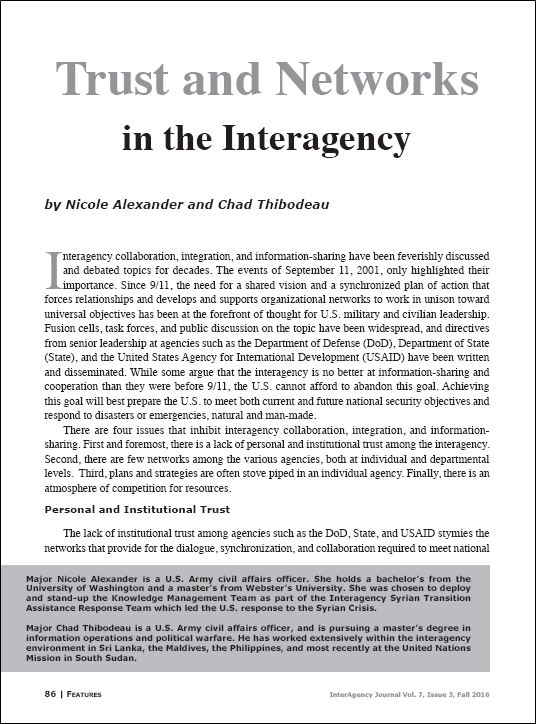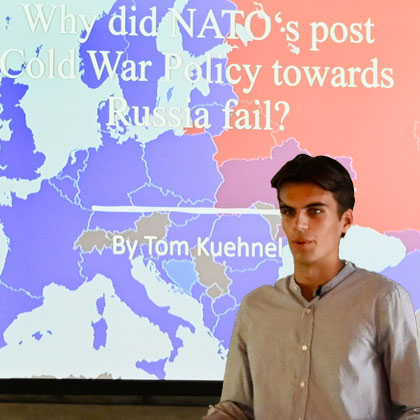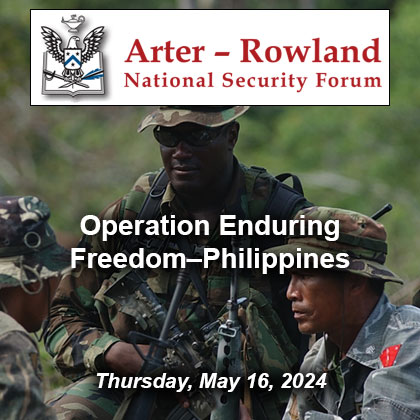Featured Article: Trust and Networks in the Interagency
Featured article:
Trust and Networks in the Interagency
by Nicole Alexander and Chad Thibodeau
Interagency collaboration, integration, and information-sharing have been feverishly discussed and debated topics for decades. The events of September 11, 2001, only highlighted their importance. Since 9/11, the need for a shared vision and a synchronized plan of action that forces relationships and develops and supports organizational networks to work in unison toward universal objectives has been at the forefront of thought for U.S. military and civilian leadership. Fusion cells, task forces, and public discussion on the topic have been widespread, and directives from senior leadership at agencies such as the Department of Defense (DoD), Department of State (State), and the United States Agency for International Development (USAID) have been written and disseminated. While some argue that the interagency is no better at information-sharing and cooperation than they were before 9/11, the U.S. cannot afford to abandon this goal. Achieving this goal will best prepare the U.S. to meet both current and future national security objectives and respond to disasters or emergencies, natural and man-made.
There are four issues that inhibit interagency collaboration, integration, and information-sharing. First and foremost, there is a lack of personal and institutional trust among the interagency. Second, there are few networks among the various agencies, both at individual and departmental levels. Third, plans and strategies are often stove-piped in an individual agency. Finally, there is an atmosphere of competition for resources.
The lack of institutional trust among agencies such as the DoD, State, and USAID stymies the networks that provide for the dialogue, synchronization, and collaboration required to meet national security objectives.
Read the full article
Trust and Networks in the Interagency PDF
Download the complete edition
IAJ 7-3 (Fall 2016) PDF
IAJ 7-3 (Fall 2016) ePub
Major Nicole Alexander is a U.S. Army civil affairs officer. She holds a bachelor’s from the University of Washington and a master’s from Webster’s University. She was chosen to deploy and stand-up the Knowledge Management Team as part of the Interagency Syrian Transition Assistance Response Team which led the U.S. response to the Syrian Crisis.
Major Chad Thibodeau is a U.S. Army civil affairs officer, and is pursuing a master’s degree in information operations and political warfare. He has worked extensively within the interagency environment in Sri Lanka, the Maldives, the Philippines, and most recently at the United Nations Mission in South Sudan.

READ THE LATEST UPDATES FROM THE SIMONS CENTER
"*" indicates required fields


